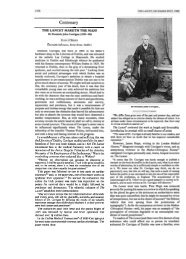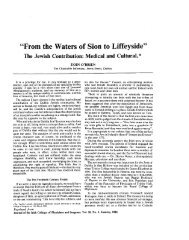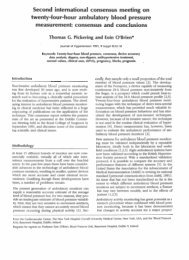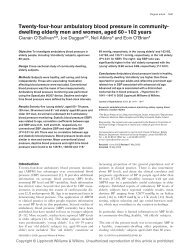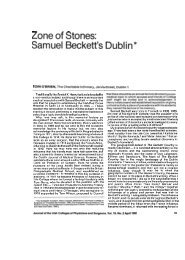Nevill Johnson: Paint the smell of grass - Eoin O'Brien
Nevill Johnson: Paint the smell of grass - Eoin O'Brien
Nevill Johnson: Paint the smell of grass - Eoin O'Brien
You also want an ePaper? Increase the reach of your titles
YUMPU automatically turns print PDFs into web optimized ePapers that Google loves.
that watched over his every brush stroke and made him wonder if anything he painted was worth<br />
a damn. Indeed, as I later recalled, he had identified <strong>the</strong> monster at a much earlier period in his<br />
career: “All artists are subject to periods <strong>of</strong> doubt, however, and I was no exception. It came<br />
suddenly; <strong>the</strong> painting was rubbish I felt, however well received; <strong>the</strong>se silent surreal wastelands,<br />
<strong>the</strong>se mute bones and raven skies – who was I addressing? Of what relevance <strong>the</strong>se Arcadian<br />
shores to a world <strong>of</strong> blackmail and bombs?”<br />
Apart from <strong>the</strong> autobiographical catharsis that I saw in <strong>the</strong>se paintings, I think I identified<br />
ano<strong>the</strong>r quality I had seen also in Beckett’s writing, and which I had earlier expressed: “With this<br />
realisation comes ano<strong>the</strong>r; much <strong>of</strong> <strong>the</strong> apparently surrealistic in Beckett’s writing is linked,<br />
sometimes very positively, sometimes only tenuously, with <strong>the</strong> reality <strong>of</strong> existence, and much <strong>of</strong><br />
this existence emanates from memories <strong>of</strong> Dublin, a world rendered almost unrecognisable by<br />
Beckett’s technique <strong>of</strong> denuding his landscape and its people (while also annihilating time) in his<br />
creation <strong>of</strong> <strong>the</strong> ‘unreality <strong>of</strong> <strong>the</strong> real’.” 2 Was <strong>Johnson</strong> not expressing similar sentiments when he<br />
wrote: “I spy psychiatrists and neurologists waiting in <strong>the</strong> wings. Let <strong>the</strong>m come to <strong>the</strong> podium<br />
and state <strong>the</strong>ir case. Rupert Sheldrake, for instance, writes <strong>of</strong> time and space-denying chreodes<br />
bearing atavistic messages from a deep primeval code through morphogenetic fields which determine<br />
our behaviour – and write our songs. Should I sit at this man’s feet and thus quench <strong>the</strong><br />
incandescent magic? I’m not denying <strong>the</strong> role <strong>of</strong> intellect; with it we can build a frame on which<br />
2. O’Brien E. The Beckett Country: Samuel Beckett’s Ireland. Black Cat Press and Faber and Faber. Dublin. 1986. P. xix<br />
136 <strong>Nevill</strong> <strong>Johnson</strong> l <strong>Paint</strong> <strong>the</strong> Smell <strong>of</strong> Grass<br />
Golgotha<br />
A Personal Memoir l <strong>Eoin</strong> O’Brien 137



